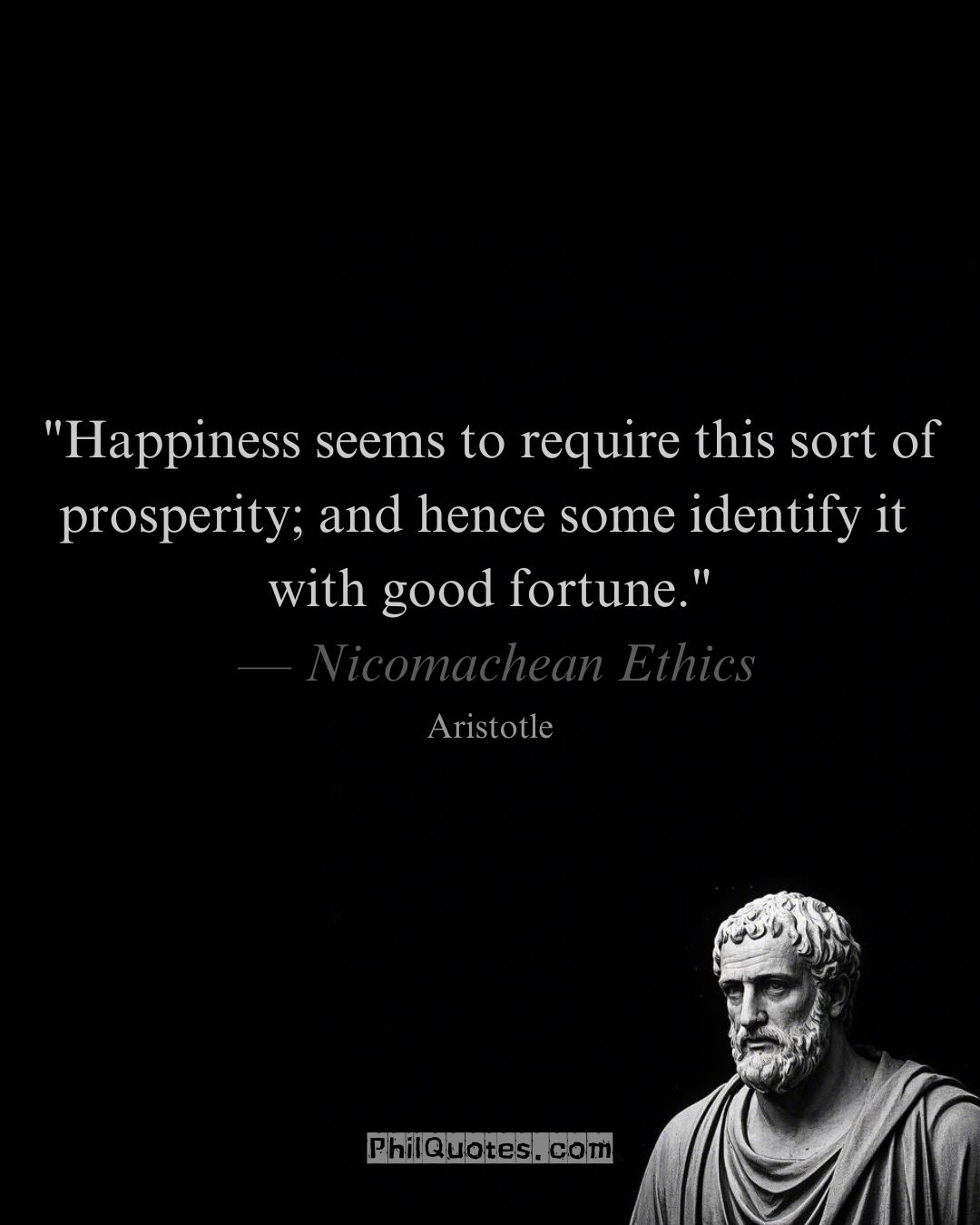
“Happiness seems to require this sort of prosperity; and hence some identify it with good fortune.”
— Aristotle, Nicomachean Ethics, Book I, Chapter 8
Simple Explanation:
Aristotle clarifies that external conditions (wealth, health, social status) enable — but don’t define — happiness. While good fortune (luck) jumpstarts opportunities, true eudaimonia demands ethical alignment of prosperity with virtue. Think of wind filling a sail: fortune provides motion, but the sailor’s skill steers toward meaningful destinations.
Real-World Connection:
① Olympic Athlete’s Path →
You inherit athletic genes (fortune) → access elite training (prosperity) → choose drug-free competition (virtuous use) → inspire youth through clean sports (happiness beyond luck).
② Startup Founder’s Crossroads →
A tech genius secures venture capital (fortune) → reject surveillance capitalism (ethical filter) → build privacy-first AI (prosperity with purpose) → redefine success as societal benefit.
③ The Hidden Equation →
Prosperity + Virtue = Eudaimonia
- Without virtue: Wealth breeds greed (misdirected wind)
- Without resources: Good intentions stall (unfilled sails)
- Harmonized: Fortune becomes a tool for justice, art, and wisdom